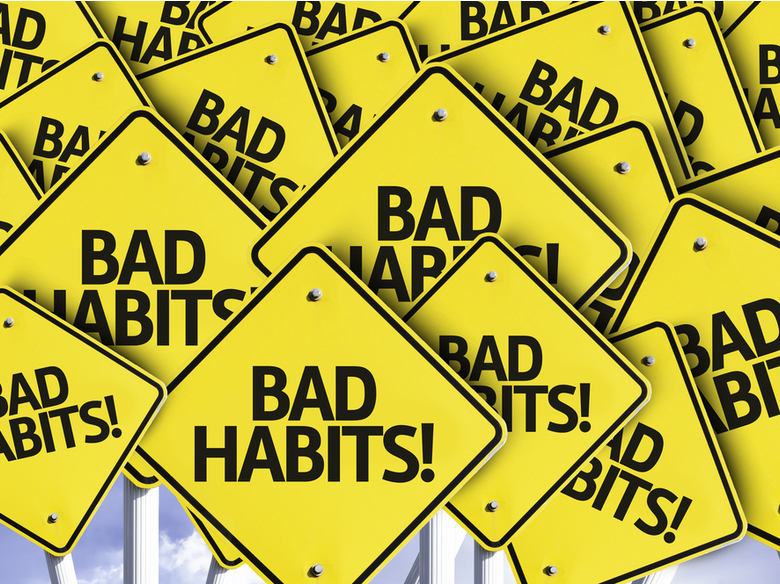Whether you’re new to sales or a veteran salesperson, it’s easy to fall into bad habits that can hinder your success. You may not even notice what you’re doing until it starts to impact your sales.
Take a moment and think about these 10 bad sales habits you need to break. See if you recognise some of them in your daily routine. If you do, take action to replace these bad habits with productive strategies.
1. Self-Doubt
Sales can be a streaky business. When you’re on a roll, it seems like you can move mountains. Conversely, hearing a lot of “no” on the way to sales can make you doubt yourself and your skills. It can sap your strength and negatively impact the way you sell.
Realise that all but the most self-centred people have doubts at times. We can all feel like we’re imposters at times. When it happens, take a deep breath and think about the amazing things you have accomplished in your career. Talk to your mentors and colleagues. Think positive thoughts about reaching your goals. Visualisation of positive outcomes and taking action can play an important role in getting past self-doubt.
Nothing works better to overcome self-doubt than forward-momentum. Pull out your priority list and start working on item number one.
2. Excuses & Complaining
Salespeople are great at making excuses and complaining about things. Do these sound familiar?
Common Salespeople Complaints
- Poor quality leads
- Our products are too expensive
- Someone else is undercutting our pricing
- Too many meetings
- Cold calls don’t work but they still make me do them
- Too many administrative tasks
Every one of these points may be valid. But, so what? Stop complaining and get to work! Complaining won’t get the job done. Approach each day in a positive manner and rise above the problems you face. If you find you’re falling victim, brainstorm ideas with your colleagues on how they overcome these challenges. Get additional sales training to learn new techniques. Role-play overcoming objections. Ask for help.
Before you can sell anyone else, you’ve got to sell yourself.
3. Not Asking For Help
Whether it’s pride, embarrassment, or fear of looking less competent, many people are afraid to ask for help. They’re worried about how their colleagues or bosses will perceive them. They fear rejection or ridicule.
The most successful people understand that they don’t have all the answers. They get past the fears and know when to ask for help. They know that everybody needs help once in a while. In fact, most people are more than happy to help if asked. It can be a learning and bonding experience.
4. Giving Up Too Soon
The majority of salespeople give up too easily or fail to follow through with prospects. After they make a few attempts to connect with someone, they move on to someone else. Here’s the problem: It takes an average of 18 calls to actually connect with a buyer. 92% of salespeople never make it past the fourth call.
Qualify your leads and narrow your list. Focus on the high-value targets that you know will benefit from your products or services. Keep at it until you connect.
5. Taking Your Time Responding
Speed can be your friend. When you get a quality lead, don’t put it off. A survey of more than 2,000 companies revealed that sales teams that contacted prospects within the first hour after getting a lead were 7 times likelier to have meaningful conversations with decision-makers. Yet more than half of companies didn’t respond within five full business days. Acting quickly can set you apart and increase your odds.

6. Putting Off Prospecting
No matter how many sales you close, you’ve still got to keep your pipeline full if you want to keep selling. When things are going well, it’s sometimes difficult to remember that. When you’re close to a big deal, you might put off prospecting. Once the deal is done, however, your pipeline will be empty and that’s never a good place to find yourself.
Schedule your prospecting time. Block out the time on your calendar each week and set aside time for prospecting. Make sure to avoid scheduling anything else during that time or let other functions take precedence. Prospecting doesn’t get the blood pumping like closing a bid deal, but it takes prospecting to get there.
7. Lack of Planning
Too many salespeople come into work every day without a plan. Your time is precious. Every second you waste takes away from getting your closer to your goal.
Each day should begin with a plan of what you want to accomplish. An effective strategy is to take a few minutes at the end of your day and write down the most important things you need to do the next day. Start on the list the next day before you settle into the daily routine.
It’s easy to fill up your day with email and internal meetings. Prioritise your day and stick to the plan. At the end of the week, write down your plan of attack for the week ahead.
8. Winging It
Once you’ve been doing sales for a while, you can get too comfortable in your approach. You start to skip steps or forget the basic foundational building blocks that lead to successful sales. You start taking short cuts or failing to prepare properly.
Treat every phase of the sales process as important. Learn as much about the customer as you can, including the important information about how your product or service solves their problems. Prepare and practice your approach. Don’t wing.
9. Using Generic Pitches
Even among customers that have similarities in their industries, there are rarely two customers that are the same. Stop using generic presentations.
Some people like flashy sports cars. Others prefer family sedans. You wouldn’t be very successful selling the benefits of a family sedan to someone that wants to be a speedster. Customise your presentation to your audience. The better you can personalise your approach and provide the right product solutions, the better your close ratios will be.
10. Always Trying To Have The Answer
You should know your products and services well. However, no salesperson will know every last thing. It can be tempting to try to dodge a question or come up with an answer that sounds right, but it’s one of the fastest ways to lose trust with a customer. Once they catch you giving less-than-honest answers or outright misinformation, it will be difficult to rebuild that trust.
When you don’t know something, be transparent. Let customers know that you take their questions seriously and you want to make sure you get the answer exactly right. Then, go research the answer and get it back to them as quickly as possible. If it’s a specific question that takes expertise beyond what you can uncover – such as technical specs or compatibility with existing software – consider bringing in someone from the support team or your in-house expert. Customers will respect your honesty and know that you are shooting straight with them.
Invest In Yourself
Great salespeople are life-long learners. They are anxious to learn new strategies and skills. Do a deeper dive into your product offerings. Attend sales training sessions. Network with peers and brainstorm ideas. Make it a priority to learn something new every week that can improve your performance.
Ditch the bad habits that are holding you back and stop allowing them to dictate your success. Invest in strategies that will move you forward.





